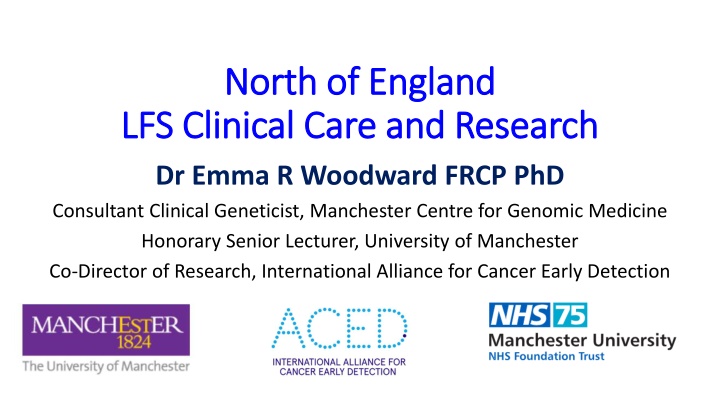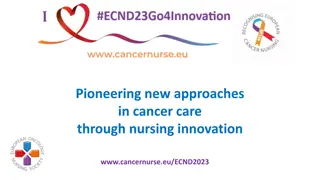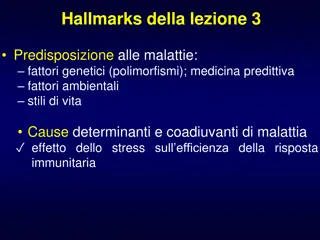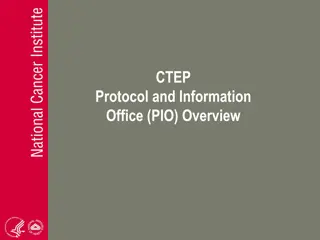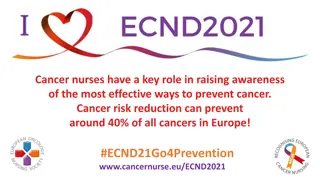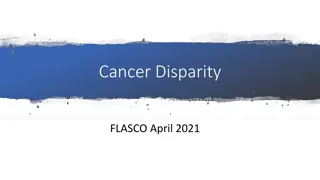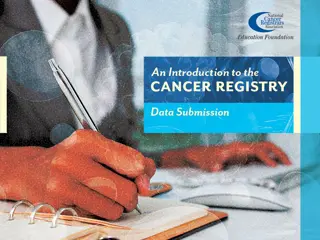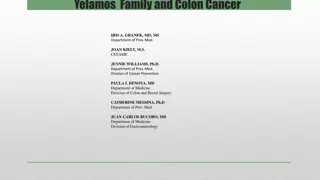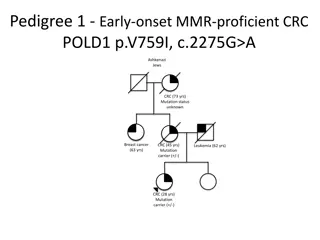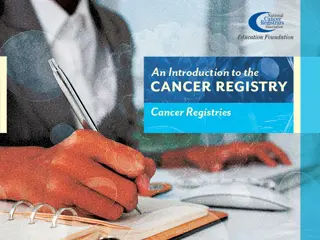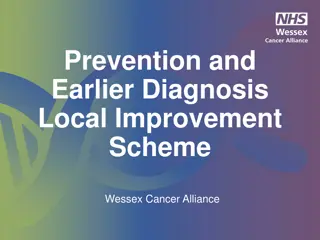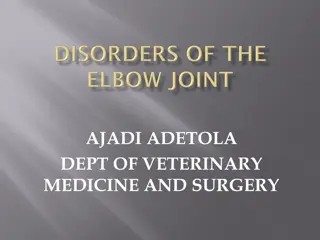Role of Consultant Clinical Geneticist in Hereditary Cancer Predisposition
Consultant Clinical Geneticists play a crucial role in assessing the risk of high-risk hereditary cancer predisposition, implementing prevention strategies, and early detection through methods like Whole Body MRI. Surveillance involves annual examinations, imaging, and expert coordination between clinicians, radiologists, and radiographers to detect concerning lesions early. This proactive approach aims to improve patient outcomes and reduce the risk of delayed cancer diagnosis.
Download Presentation

Please find below an Image/Link to download the presentation.
The content on the website is provided AS IS for your information and personal use only. It may not be sold, licensed, or shared on other websites without obtaining consent from the author.If you encounter any issues during the download, it is possible that the publisher has removed the file from their server.
You are allowed to download the files provided on this website for personal or commercial use, subject to the condition that they are used lawfully. All files are the property of their respective owners.
The content on the website is provided AS IS for your information and personal use only. It may not be sold, licensed, or shared on other websites without obtaining consent from the author.
E N D
Presentation Transcript
North of England North of England LFS Clinical Care and Research LFS Clinical Care and Research Dr Emma R Woodward FRCP PhD Consultant Clinical Geneticist, Manchester Centre for Genomic Medicine Honorary Senior Lecturer, University of Manchester Co-Director of Research, International Alliance for Cancer Early Detection
Overview The role of a Consultant Clinical Geneticist Clinical pathway surveillance Service evaluation studies University of Manchester s involvement in translational research Patient research focus group
Consultant Clinical Geneticist, medically qualified Hereditary Cancer Predisposition Assessing risk, working out likelihood of high-risk hereditary predisposition for pattern / types of cancer in individual /family Where there is likely high-risk hereditary predisposition put appropriate cancer prevention and / or early detection strategies into place Early detection picking up a cancer before individual notices anything amiss not diagnostic investigation of new symptoms / signs
Whole Body MRI (WBMRI) Diffusion weighted imaging (cellular/tissue components have different water diffusion properties) Helps detect small lesions https://www.genturis.eu/l=eng/Assets/TP53-Surveillance-Guideline---ERN-GENTURIS-Version7011.pdf
Surveillance Annual clinical examination & imaging Patient required to travel to hospital with WBMRI machine Aim to detect concerning lesions before individual presents with symptoms / signs Surveillance scans, not diagnostic investigations If develop symptoms / signs in that intervening year, then must seek advice from usual medical services eg through GP https://www.istockphoto.com/ False positive Imaging / examination detects something, individual has further investigations, turns out not of concern Can cause anxiety False negative Imaging / examination misses a concerning lesion Delayed cancer diagnosis
Roles in Clinical Early Detection - who does what LFS Clinician Request surveillance imaging and see individuals in surveillance clinic Radiology Department Triage radiology requests made by clinician and book scans as appropriate Radiographer Healthcare professionals who take scans of patients Radiologist Interprets the scan images, writes a report, and sends report to requesting clinician
Surveillance scan is reported Normal Clinician writes letter advising the result is normal and requests for appointment in next clinic Abnormal Clinician writes letter advising the individual of the results eg diagnostic investigation recommended and offer to speak to / see person Generally see individuals annually If queries around eg PGD, predictive testing for children separate dedicated genetic counsellor appointment
Discovery Research & Clinical Care Research guided by patient input New New Standard Standard Clinical Clinical Care Care Discovery Discovery Research Research Validation Validation
Why early detection and interception? Survival and Stage at Diagnosis are Closely Linked cancer diagnoses to survive 10years by 2034 of cancer diagnoses to be Stage 1-2 by 2028 https://ourfuturehealth.org.uk/cancer-research-uk-and-our-future-health/ https://www.england.nhs.uk/long-term-plan/
Li Fraumeni Syndrome Discovery Research in Manchester New ways of detecting cancer early Early changes in tissue: normal cancer Need to know this, to then think about interception Interception Collaboration with Ontario Institute for Cancer Research (OICR) Participation is entirely optional, we offer but is totally up to individual / parents Not being involved does not prejudice clinical care
University of Manchester researchers are aiming to co- develop a cancer early detection blood test Collaboration: Data sharing is key
Inputs from our active Patient Research Focus Group shapes the research study design Ongoing open dialogue Ongoing open dialogue Safe Space Confidential Thoughts and questions Stepping away Comfort Breaks Reimburse attendees for their time - We share our contact details - participants can get in touch if they have ideas for future research - We welcome feedback and adapt the delivery of the forum to suit the attendees Slide created by Stephanie Ng, University of Manchester
